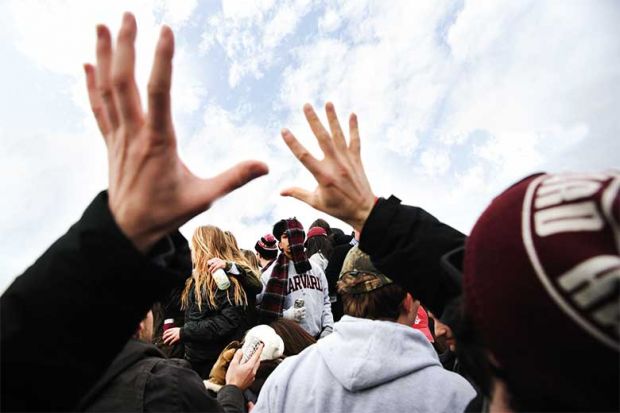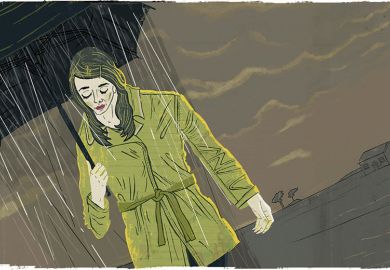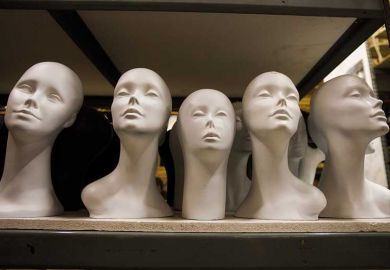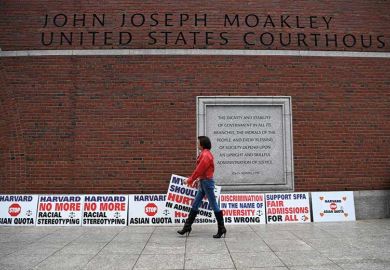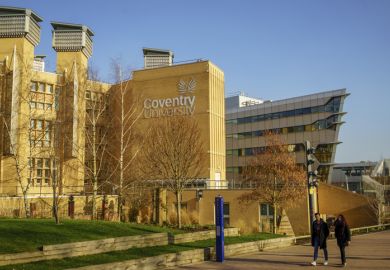Even the seasons feel different to the rich and the poor.
Anthony Abraham Jack’s new book, The Privileged Poor: How Elite Colleges Are Failing Disadvantaged Students, opens with his arrival at private, liberal-arts Amherst College, Massachusetts, in 2003. He had grown up in Coconut Grove, Miami, where the only white people on the streets “fell into three easily identifiable categories: police officers, crackheads, and people who had lost their way”. His privileged new classmates “swapped stories of summer fun”, including “multiweek trips abroad”, “fancy parties” and “courtside seats at professional basketball games”. Yet for him and his family, summer had merely meant “a hundred days of heat, humidity, and hurricanes”.
As this vignette suggests, The Privileged Poor is a book about social class in American higher education and the often painful culture clashes it gives rise to. But there is a twist. Between Coconut Grove and Amherst, Jack – who is now an assistant professor at the Harvard Graduate School of Business – had spent a scholarship year at a wealthy private high school in Miami called Gulliver Preparatory.
This acted, he tells Times Higher Education, like “a trailer to the full-blown movie”. He had to deal with a certain amount of racism and snobbery but was also granted “a peek behind the veil” into elite educational institutions, where teaching staff have time for close and supportive interaction with pupils. He also cultivated some rich friends to get a glimpse of the good life, and so acquired the skills to negotiate a world where most of his fellow students came from wealthier backgrounds.
After his undergraduate degree at Amherst, Jack moved on to Harvard for a master’s and PhD in sociology, which eventually led to a faculty position. What he soon discovered was that his own experience was almost entirely neglected in the academic literature. While his family was certainly poor, his time at Gulliver had transformed him into a member of the “privileged poor” referred to in his book’s title. By contrast, academic studies tended to concentrate on the group that his book describes as the “doubly disadvantaged”, who suffer severe culture shock when they go straight from a tough high school to a university full of privileged students.
“We are not paying enough attention to the diversity of experience students [from disadvantaged backgrounds] are bringing with them,” explains Jack. “To understand why they adopt certain behaviours, we have to understand their trajectories to college. We have flattened out the diversity within them.”
This represents a failure of sociological analysis. But it also has real implications for what universities need to do if they genuinely want to embrace diversity, Jack believes.
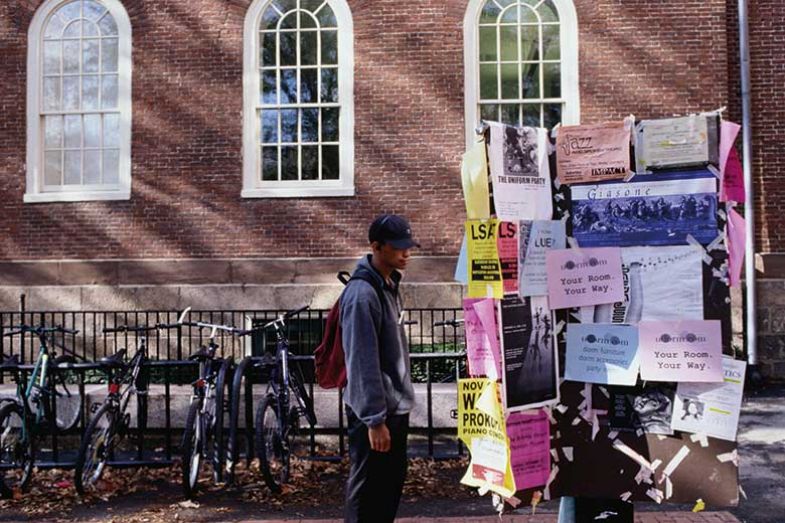
The Privileged Poor is based on a two-year project that Jack carried out for his Harvard PhD at an institution the book calls “Renowned University”, “an elite college in the northeast United States with a long history of educating academically gifted youth” (which may or may not be Harvard itself). Based on immersive research and in-depth interviews with 103 students, the book includes many striking stories of the gulf between rich and poor. Those who often had to deal with “problems at home with their family and friends – typically some combination of evictions, convictions, and violence” tended to be alienated if not disgusted by peers who bring their own interior decorators into college, boast about mid-semester trips to India for a friend’s wedding or post pictures of themselves “on their yachts with bottles of Dom Pérignon and Rolexes” on Rich Kids of the Internet.
Other encounters have a distinct element of comedy. Take the case of doubly deprived “Jose”, a young man who grew up in a poor, dangerous and largely Latino district of Los Angeles. Feeling isolated at Renowned, he was delighted to discover that someone from Mexico City had moved on to his floor at his hall of residence: “Another Mexican? We’re about to be homies!” he thought. Unfortunately, the new arrival came from a totally different class background: his father flew him out to Texas for every Dallas Cowboys home game. So there was little chance of their bonding. At the end of term, the rich kid wanted to throw out a velvet Ralph Lauren dressing gown he couldn’t be bothered to pack. Even though Jose realised that the other young man’s “balls and his dick were all over the thing”, it “felt hella good” and he was happy to take it.
The problems of the doubly disadvantaged do not end with the difficulty of bonding with their classmates. Equally significant, says Jack, is “the ‘hidden curriculum’ that hurts those for whom a college environment is new”.
This is manifested even in seemingly innocuous phrases. “A professor will come in and say ‘My office hours are from X to Y’,” he notes. “That’s a very loaded statement, using words with a lot of meaning behind them.” The upper income or privileged poor students will take up the implicit offer, come to the professor’s office, ask for favours, build contacts and so on. The doubly disadvantaged are often warier of authority figures, or remember high school teachers who were too stressed by fire-fighting to act as mentors. Many are also self-reliant, focused on “the work”, and regard it as a sign of weakness or sycophancy to seek help. As a result, they fail to use the professors as valuable resources, missing out on internships and references, as well as academic guidance.
In Jack’s view, it would be good to make clear to the doubly disadvantaged early on that even if they don’t feel as though they need help, they should drop by during “office hours”, since success at university and afterwards depends on who you know as much as what you know. Jack himself organises meetings for first-generation students, including “sessions on navigating graduate school”, but while more such proactive outreach by academics would be welcome, he believes that “they are not going to change the game. There is too much invested in the way things are, in privilege and power.”
He hopes his book will go some way towards “getting students better prepared to play the game”. Universities, meanwhile, need to do their bit to “remove the hurdles, visible and invisible, that lower-income students face”. Even terms as basic as “fellowship”, “prerequisite” and “credit” can feel bafflingly exclusionary.
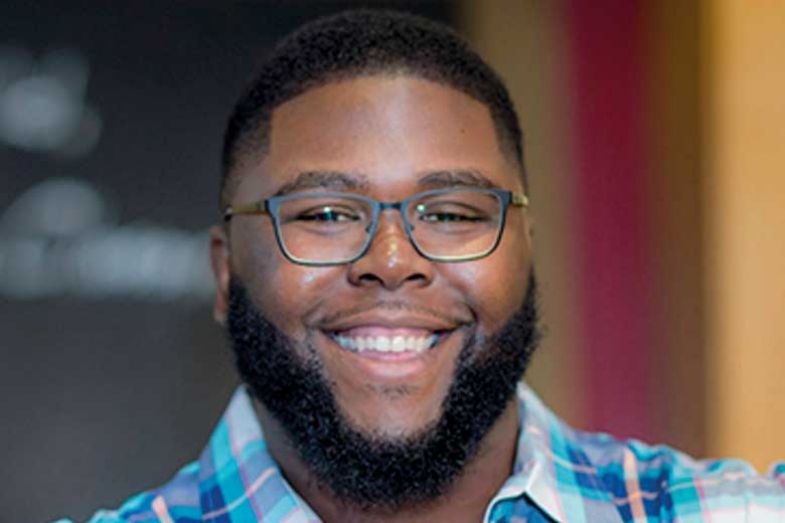
What the privileged poor and doubly disadvantaged share, of course, is shortage of cash, even if they receive “no-loan financial aid”. Jack has already written in Times Higher Education about the hardship and sometimes genuine hunger caused by universities shutting down all cafeterias during spring break (“Hungry students offer food for thought for diversification efforts”, Opinion, 28 February). His book also addresses two other problematic policies.
One is the phenomenon of “community detail”, by which poor students are able to earn a little money by cleaning the rooms of their rich peers. The Privileged Poor reports ghastly stories of such students having to “pick up soiled tampons and used condoms, mop sticky floors, sweep up dead cockroaches and rats, scoop vomit from sinks, and pull out hair stuck in clogged drains”. The more arrogantly privileged may make no effort to be tidy because they know someone else will clear up after them and sometimes even berate fellow students for “missing a spot”.
On this issue, Jack takes a strong line. He would gladly see community detail abolished and replaced, for those who need the money, by “jobs that put students in contact with professors, deans and members of staff that are academically or socially enriching. I also think students can clean their own darn rooms!”
Slightly more morally complicated is a programme called Scholarship Plus, which provides students on full financial aid with five free tickets per semester to campus events. This may sound admirable, but it comes with a catch. Those paying their $15, we read, queue up for tickets at a table “next to the main entrance near the well-manicured front lawn”. Those who have “PLUSed” their tickets, by contrast, have to go to a table “next to the scuffed-up back door, which leads to an alley full of broken-down cardboard boxes”.
The Privileged Poor is a book about encouraging US universities to have “as robust conversations about social class as they do about gender and race”. Although the proportions differ, there are students of all races and genders in all of Jack’s categories for student background. Some of them clearly feel that community detail in any form and Scholarship Plus in the way it is currently organised are not only humiliating but deliberately humiliating.
Yet this also plays out rather differently on the basis of race, Jack claims. White students were sometimes upset to be “outed” as poor to people who had previously known nothing about their socio-economic background. Black and Latino students, meanwhile, “had to contend with the fact that being in that line [for Scholarship Plus tickets] underscored stereotypes that they had been fighting or experienced their entire lives – that to be black or Latino means to be poor”. Furthermore, such queues were often largely distinguished by race, and so called up discomforting echoes of “poor doors” and segregated facilities from earlier African American history. Similarly, some black students who took part in community detail were disturbed by family and wider memories of poor blacks cleaning up after rich whites.
The research that led to the book also proved disturbing to Jack himself. He found himself recalling episodes from a childhood in which “fights in the middle of the streets” and “disruptions to utilities” were far from unknown. “I was doing three or four interviews a day for days on end, and hearing those stories [from other poor, first-generation students] gets to you. You don’t just leave the interview in the office. You carry it with you. The interviews can trigger things from your own past you haven’t thought about in a decade.”
Fortunately, Jack has also had successes in lobbying Renowned University and other higher education institutions to eliminate separate queues and to ensure that food is available for students during spring break. These represent small but important steps towards his long-term goal of making “access” mean genuine “inclusion”, by “removing barriers which remind [lower-income] students they are second-class citizens in a first-class world”.
Anthony Abraham Jack’s The Privileged Poor: How Elite Colleges Are Failing Disadvantaged Students was recently published by Harvard University Press.
POSTSCRIPT:
Print headline: All inclusive?
Register to continue
Why register?
- Registration is free and only takes a moment
- Once registered, you can read 3 articles a month
- Sign up for our newsletter
Subscribe
Or subscribe for unlimited access to:
- Unlimited access to news, views, insights & reviews
- Digital editions
- Digital access to THE’s university and college rankings analysis
Already registered or a current subscriber?
